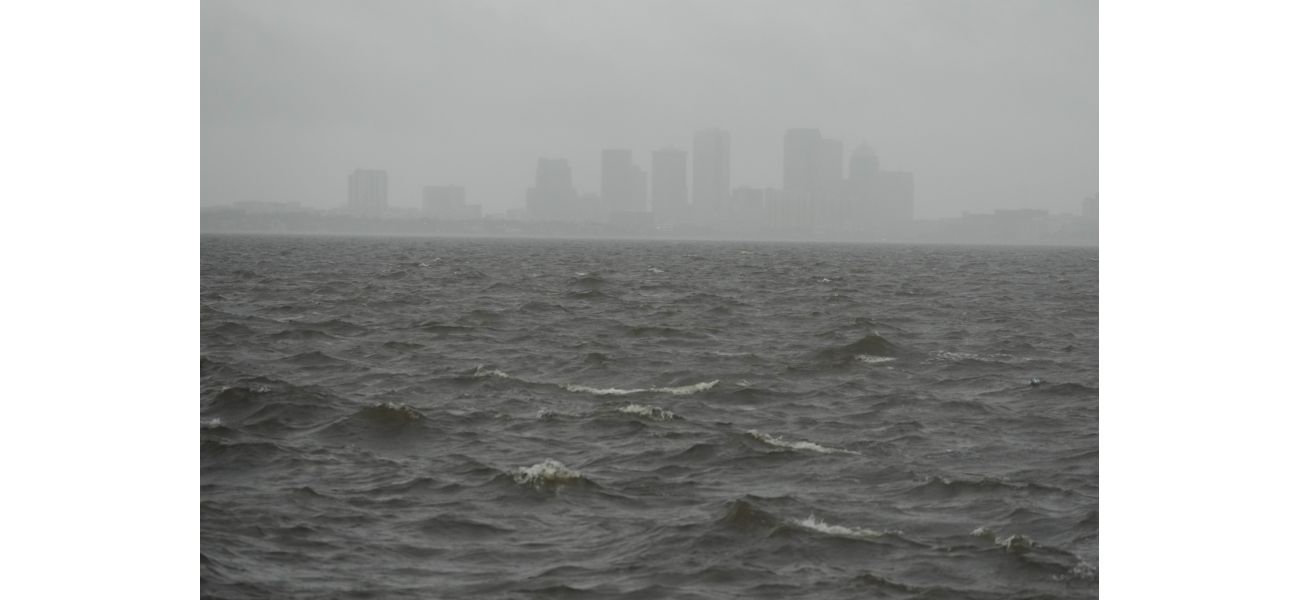When is Florida expecting Hurricane Milton?
At 7pm EST (10am AEST), Hurricane Milton was 50km from Sarasota and 225km from Orlando.
October 9th 2024.

As the hours tick by, Hurricane Milton is fast approaching the coast of Florida, with its northern edge already making its way onto land. At 7pm US Eastern Time, the centre of the hurricane was only 50km from Sarasota and 225km southwest of Orlando, a major city in the region. Moving at a speed of 24km/h towards the north-east, it is expected to make landfall sometime during lunchtime in Australia.
According to the latest updates, Hurricane Milton has broken the record for the most tornadoes in a single hurricane before reaching land. The National Hurricane Centre has reported that the storm's Northern Eyewall is now coming onshore near Tampa and St. Petersburg, prompting the issuance of extreme wind warnings in the area. Residents have been advised to stay indoors and take shelter as the hurricane brings with it extremely dangerous hurricane-force winds.
Central and southwestern Florida are bracing for life-threatening storm surges and damaging winds as Hurricane Milton continues its path. Strong winds of 98km/h, with gusts reaching 124km/h, have already been recorded at the mouth of Tampa Bay. Other areas along the coast have also reported strong winds, with Venice recording 109km/h, St. Petersburg at 106km/h, and Sarasota at 96.5km/h. The National Hurricane Center has cautioned that the exact location of the hurricane's landfall is uncertain due to its unpredictable movements, but the entire Tampa Bay region and surrounding areas are at high risk.
This year's hurricane season has been deemed the strangest ever by scientists, with Hurricane Milton being the latest addition to the list of unusual weather phenomena. It all began when Beryl became the earliest storm on record to reach Category 5 status, a prediction that was foreseen by forecasters who had predicted a busy hurricane season for the Atlantic. However, from August 20th to September 23rd, the peak hurricane season, there was a record-breaking lull in activity, according to Phil Klotzbach of Colorado State University. But then, between September 26th and October 6th, five hurricanes appeared, surpassing the previous record of two. In a never-seen-before occurrence, there were three hurricanes simultaneously in October on Sunday and Monday, as noted by Klotzbach.
In just under two days, Hurricane Milton went from being a tropical storm with winds of 64km/h to a powerful Category 5 hurricane, breaking all records. With the frequency of hurricanes causing chaos and destruction in the US, some may wonder if these extreme weather events can be controlled. However, scientists have asserted that hurricanes are too powerful to be manipulated and that climate change is only fueling their intensity, as seen with hurricanes Helene and Milton.
As Hurricane Milton approaches, concerns arise about the potential damage it may cause, particularly in Florida's Gulf Coast, which is highly prone to storm surges. Even though Helene made landfall about 290km north of Tampa, it still resulted in drowning deaths due to surges that were 1.5 to 2.5 meters above the normal tide levels in the Tampa area. Forecasts predict a 2 to 3 meter storm surge in Tampa Bay and up to 4 meters in areas south of there, from Anna Maria Island to Boca Grande. The city of St. Petersburg, located on Tampa Bay, has warned its residents to prepare for prolonged power outages and a possible shutdown of the sewage system. Mayor Ken Welch has acknowledged that the recovery process will be long and challenging, stating, "We have a long road ahead of us."
As it continues its journey, Hurricane Milton is expected to pass through central Florida and bring heavy rainfall of up to 46 centimeters on its way towards the Atlantic Ocean, as reported by the hurricane centre.
According to the latest updates, Hurricane Milton has broken the record for the most tornadoes in a single hurricane before reaching land. The National Hurricane Centre has reported that the storm's Northern Eyewall is now coming onshore near Tampa and St. Petersburg, prompting the issuance of extreme wind warnings in the area. Residents have been advised to stay indoors and take shelter as the hurricane brings with it extremely dangerous hurricane-force winds.
Central and southwestern Florida are bracing for life-threatening storm surges and damaging winds as Hurricane Milton continues its path. Strong winds of 98km/h, with gusts reaching 124km/h, have already been recorded at the mouth of Tampa Bay. Other areas along the coast have also reported strong winds, with Venice recording 109km/h, St. Petersburg at 106km/h, and Sarasota at 96.5km/h. The National Hurricane Center has cautioned that the exact location of the hurricane's landfall is uncertain due to its unpredictable movements, but the entire Tampa Bay region and surrounding areas are at high risk.
This year's hurricane season has been deemed the strangest ever by scientists, with Hurricane Milton being the latest addition to the list of unusual weather phenomena. It all began when Beryl became the earliest storm on record to reach Category 5 status, a prediction that was foreseen by forecasters who had predicted a busy hurricane season for the Atlantic. However, from August 20th to September 23rd, the peak hurricane season, there was a record-breaking lull in activity, according to Phil Klotzbach of Colorado State University. But then, between September 26th and October 6th, five hurricanes appeared, surpassing the previous record of two. In a never-seen-before occurrence, there were three hurricanes simultaneously in October on Sunday and Monday, as noted by Klotzbach.
In just under two days, Hurricane Milton went from being a tropical storm with winds of 64km/h to a powerful Category 5 hurricane, breaking all records. With the frequency of hurricanes causing chaos and destruction in the US, some may wonder if these extreme weather events can be controlled. However, scientists have asserted that hurricanes are too powerful to be manipulated and that climate change is only fueling their intensity, as seen with hurricanes Helene and Milton.
As Hurricane Milton approaches, concerns arise about the potential damage it may cause, particularly in Florida's Gulf Coast, which is highly prone to storm surges. Even though Helene made landfall about 290km north of Tampa, it still resulted in drowning deaths due to surges that were 1.5 to 2.5 meters above the normal tide levels in the Tampa area. Forecasts predict a 2 to 3 meter storm surge in Tampa Bay and up to 4 meters in areas south of there, from Anna Maria Island to Boca Grande. The city of St. Petersburg, located on Tampa Bay, has warned its residents to prepare for prolonged power outages and a possible shutdown of the sewage system. Mayor Ken Welch has acknowledged that the recovery process will be long and challenging, stating, "We have a long road ahead of us."
As it continues its journey, Hurricane Milton is expected to pass through central Florida and bring heavy rainfall of up to 46 centimeters on its way towards the Atlantic Ocean, as reported by the hurricane centre.
[This article has been trending online recently and has been generated with AI. Your feed is customized.]
[Generative AI is experimental.]
0
0
Submit Comment





